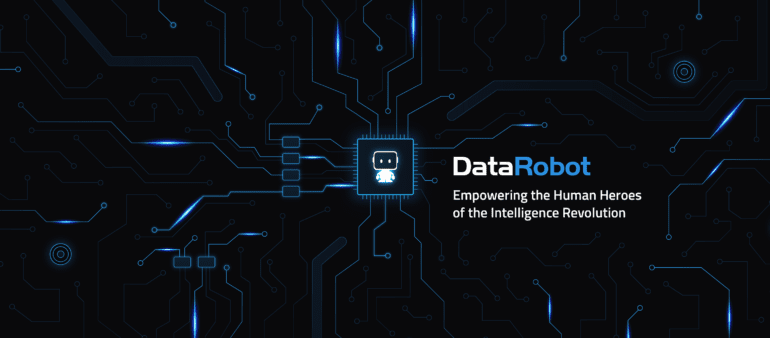TL;DR:
- DataRobot has partnered with Microsoft to accelerate AI adoption in the enterprise.
- The collaboration includes integrations with Microsoft Azure OpenAI Service, Azure Machine Learning, and Azure Kubernetes Service (AKS).
- Data scientists can use large language models (LLMs) to assist with code writing, enabling the easier building, deployment, and management of enterprise-ready AI solutions on Microsoft Azure.
- The integration of DataRobot with Microsoft’s generative AI and ML services delivers breakthrough innovation and experiences for machine learning, experimentation and production work.
- Azure OpenAI Service’s models can be used directly inside DataRobot, simplifying model building and deployment using code and no-code methods.
- The collaboration aims to accelerate the adoption of generative AI for businesses of all sizes.
- New integrations with Azure OpenAI Services and Azure Machine Learning improve the efficiency of ML practitioners and builders, enabling organizations to derive value from AI.
- The DataRobot AI Platform now supports Microsoft Azure Kubernetes Service and offers various deployment options.
- Interoperability and generative AI are vital for successful AI and ML deployments.
- Embracing AI is projected to increase local economies’ GDP by 26% by 2030, thanks to its transformative power.
- The partnership between DataRobot and Microsoft helps organizations optimize their data science teams’ effectiveness and efficiency.
- DataRobot’s flexibility and integration capabilities with Microsoft Azure provide opportunities for innovation and driving business goals.
Main AI News:
In a strategic collaboration aimed at driving AI adoption in the enterprise, DataRobot and Microsoft have joined forces. This partnership entails integrating DataRobot’s advanced capabilities with Microsoft Azure’s OpenAI Service, Azure Machine Learning, and Azure Kubernetes Service (AKS). The result is a powerful synergy that enables data scientists to harness the potential of large language models (LLMs) to streamline code development.
With this integration, DataRobot and Microsoft customers can seamlessly create, deploy, and manage end-to-end AI solutions on the robust Microsoft Azure platform. By incorporating Microsoft’s generative AI and ML services, DataRobot delivers breakthrough innovation and enhances the machine learning experience. Venky Veeraraghavan, Chief Product Officer at DataRobot, expresses excitement about the collaboration, highlighting how generative AI will revolutionize AI use cases.
Azure OpenAI Service’s models are now directly accessible within DataRobot, empowering users to build models using code and no-code methods while leveraging the capabilities of Azure Machine Learning. This seamless integration paves the way for DataRobot to utilize LLMs, accelerating the adoption of generative AI across businesses of all sizes.
Eric Boyd, Corporate VP of AI Platform at Microsoft, emphasizes the importance of strategic partnerships in meeting customer needs and driving tangible business outcomes. He lauds DataRobot’s expertise in solving complex AI problems and affirms Microsoft’s commitment to supporting businesses on their AI journey.
The collaboration between DataRobot and Microsoft introduces several key integrations that enhance the efficiency of ML practitioners and builders, ultimately unlocking the value of AI for organizations:
1. Integration with Azure OpenAI Services: DataRobot Notebooks Code-Assist, now available in Preview, empowers customers to generate data preparation and modeling code in Python using conversational prompts. Leveraging the full context of the business use case and available data, users can streamline code development.
2. Integration with Azure Machine Learning: This integration simplifies the deployment of trained models from DataRobot’s registry to Azure Machine Learning-managed endpoints. Users can easily monitor these deployments in DataRobot and benefit from automated model compliance documentation for both DataRobot and Azure Machine Learning models.
3. Future-Ready AI-Optimized Infrastructure: With complete support for Microsoft Azure Kubernetes Service, the DataRobot AI Platform offers a range of deployment options. This includes self-managed deployments on Azure Kubernetes Service and managed single-tenant SaaS, providing organizations with flexible infrastructure choices.
Experts in the field of AI recognize the significance of interoperability and generative AI in driving successful AI and ML deployments. Andy Thurai, VP & Principal Analyst of Constellation Research, highlights the transformative impact of integrations like the one between Microsoft and DataRobot. According to recent market research, businesses that embrace AI are projected to increase their local economies’ GDP by 26% by 2030, owing to the power of AI.
For BSI, a complete AI lifecycle platform is crucial for optimizing their growing data science team’s effectiveness and efficiency. Craig Civil, Director of Data Science and Artificial Intelligence at BSI, praises DataRobot’s flexibility and its integration capabilities with Microsoft Azure. By leveraging the integration with Azure OpenAI, BSI aims to continue driving innovation and achieving its goals.
Conlcusion:
The partnership between DataRobot and Microsoft to accelerate AI adoption in the enterprise signifies a significant advancement in the market. By integrating DataRobot’s advanced capabilities with Microsoft Azure’s powerful AI and ML services, businesses now have enhanced tools and infrastructure to harness the potential of AI. This collaboration enables organizations of all sizes to easily build, deploy, and manage AI solutions, resulting in improved operational efficiency, innovation, and the ability to drive bottom-line goals. The seamless integration of generative AI and large language models offers breakthrough opportunities for businesses to derive value from their AI investments, paving the way for transformative growth and a competitive edge in the market.

